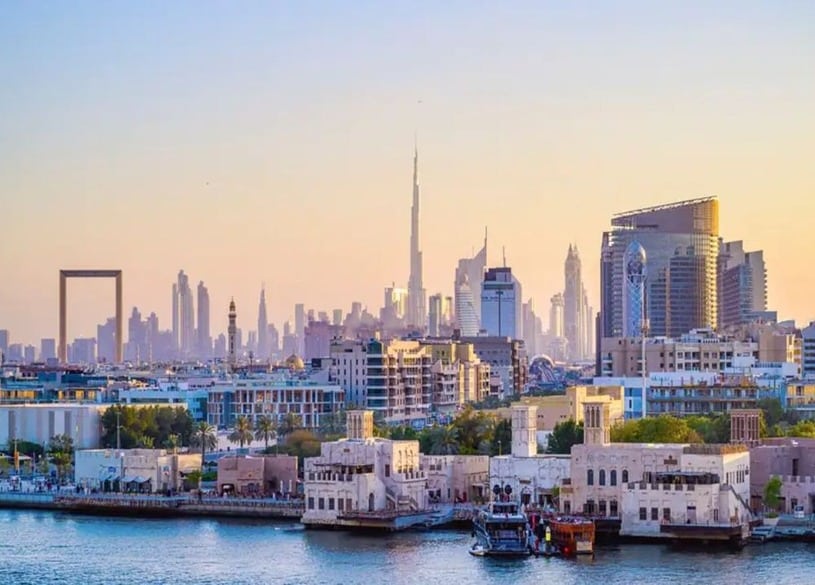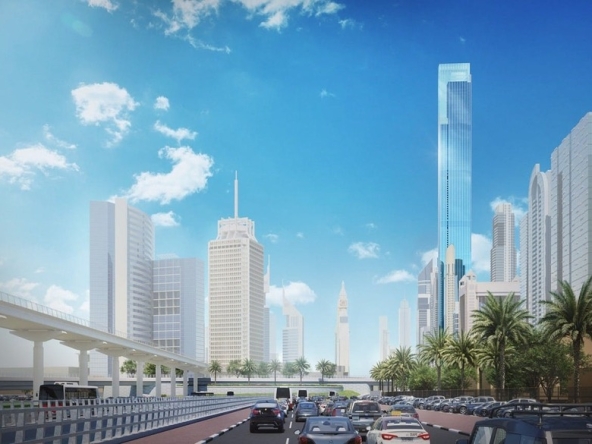Dubai’s Residential Market Booms: Over 35,000 New Units Expected by Year End.Dubai’s real estate sector continues its robust trajectory, poised to witness the delivery of over 35,000 new residential units by the close of the year, as per a recent study by JLL. The surge in investor demand is underpinned by innovative product offerings, enticing payment plans, and recent amendments to the golden visa prerequisites.
Strong Growth Trends in Dubai and Abu Dhabi
According to JLL’s UAE Real Estate Market Overview for Q1 2024, Dubai witnessed the delivery of approximately 10,000 units, with an additional 1,600 units in Abu Dhabi during the same period. This upsurge signals substantial growth in the residential segment across the UAE, with developers redirecting their attention towards secondary locales.
Dubai’s Flourishing Market Dynamics
Dubai’s market kicked off the year on a high note, with around 10,000 units completed in the first quarter, elevating the total stock to 729,000 units. Over the subsequent nine months, an estimated 25,000 units are slated for delivery, primarily apartments situated in prominent areas such as MBR City, Business Bay, Jumeirah Village, and Dubai Land.
Abu Dhabi’s Steady Growth Trajectory
In Abu Dhabi, a steady influx of 1,600 units was recorded, with an additional 6,000 units expected by year-end, as highlighted in the report.
Shifting Dynamics and Market Trends
Faraz Ahmed, research director at JLL Mena, notes a 20% surge in residential sales transactions in Dubai compared to the previous year, paralleled by a 17% uptick in Abu Dhabi. The focus on secondary locations and properties within the Dh2 million price bracket is attributed to escalating land prices and construction costs, aligning with the Golden Visa eligibility criteria.
Escalating Prices and Rental Trends
Sale prices and rental rates surged by 21% annually in Dubai, with apartment rentals witnessing a notable 22% increase, outpacing villa rentals which grew by 14%. Similarly, Abu Dhabi observed a 4.0% average increase in rental rates and a 7.0% average increase in sales prices. Apartment rentals in Abu Dhabi outpaced villa rentals by 5.0%.
Hospitality Sector Expansion
Dubai’s hospitality landscape witnessed significant growth, with the addition of 2,000 new keys in the first quarter, primarily comprising 5-star establishments in key areas like Business Bay, Za’abeel, and Port Saeed. An additional 5,000 keys, including both 4- and 5-star properties, are anticipated throughout the year. Conversely, Abu Dhabi’s hotel supply remained relatively stable, with a projected addition of 500 keys.
Tourism Boost and Economic Impact
Dubai experienced a notable uptick in tourism, with 3.67 million visitors in January and February alone, marking an 18% increase from the previous year. Western Europe, South Asia, and the GCC emerged as the primary source markets, contributing to a 5.0% year-over-year increase in average daily rates (ADR) and revenue per available room (RevPar).
Enhancing Competitive Edge
The report underscores the pivotal role of experience-driven developments in maintaining a competitive edge in the hospitality sector. Operators are investing in revitalizing their offerings through strategic partnerships with lifestyle groups, introducing new concepts and brands, particularly within the lucrative F&B segment.
In essence, Dubai’s real estate and hospitality sectors continue to chart an upward trajectory, fueled by strategic initiatives and robust market fundamentals. Contact us









